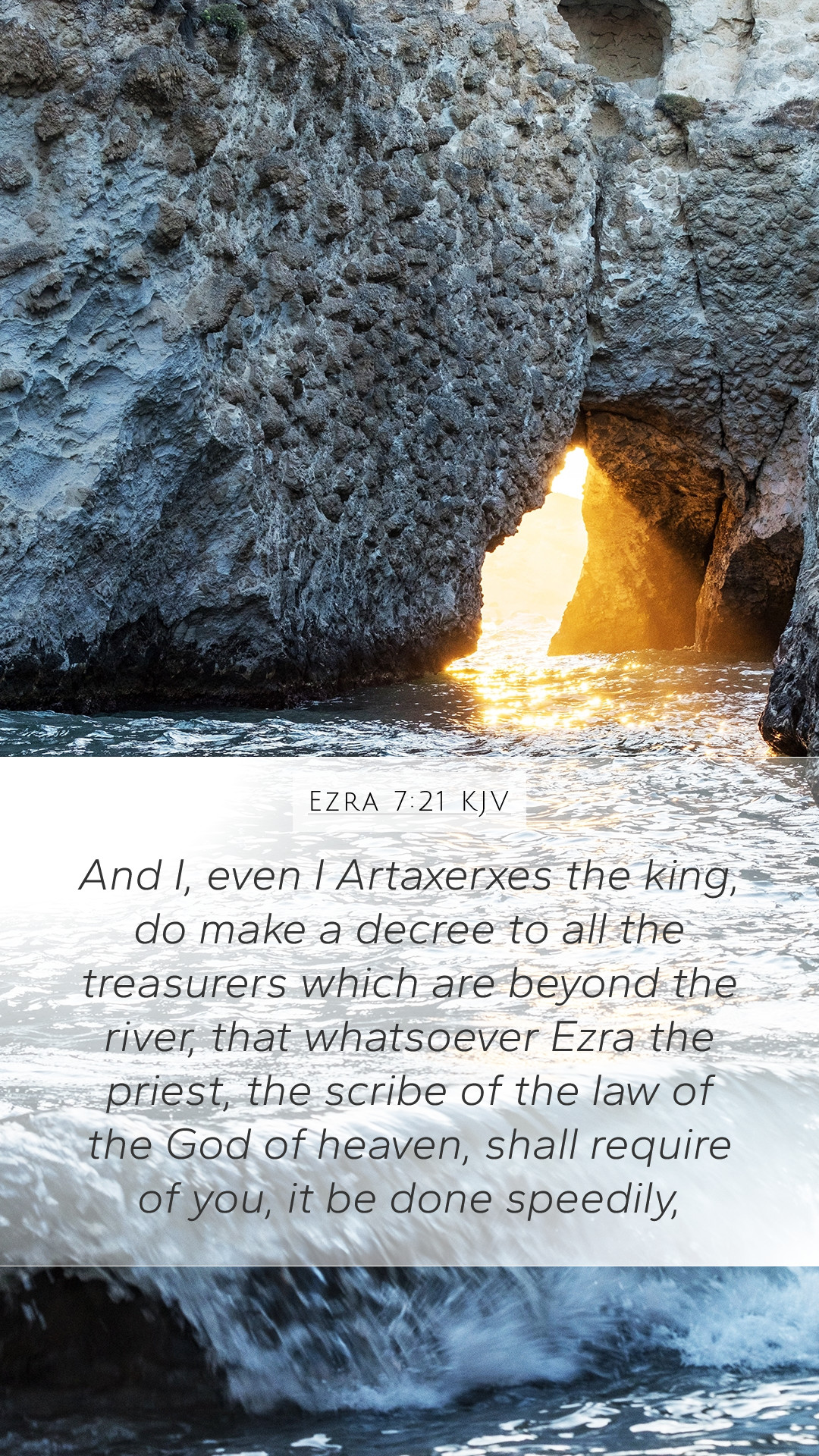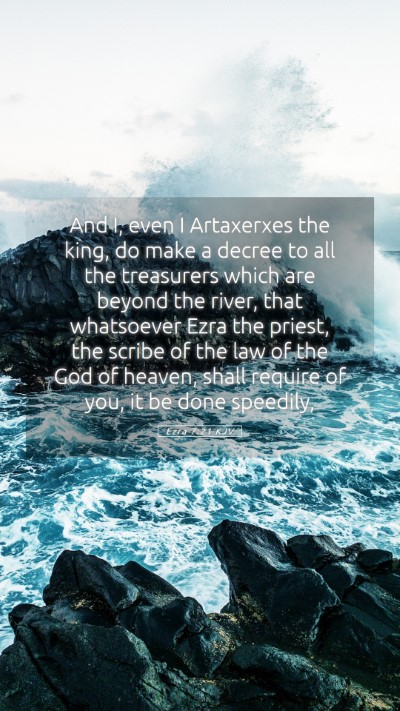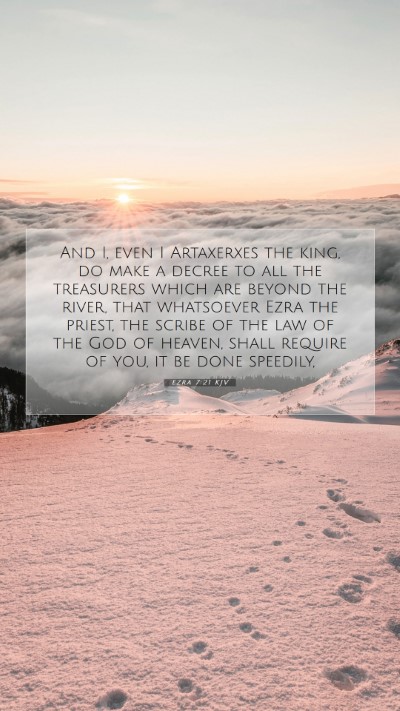Old Testament
Genesis Exodus Leviticus Numbers Deuteronomy Joshua Judges Ruth 1 Samuel 2 Samuel 1 Kings 2 Kings 1 Chronicles 2 Chronicles Ezra Nehemiah Esther Job Psalms Proverbs Ecclesiastes Song of Solomon Isaiah Jeremiah Lamentations Ezekiel Daniel Hosea Joel Amos Obadiah Jonah Micah Nahum Habakkuk Zephaniah Haggai Zechariah MalachiEzra 7:21 Meaning
What is the meaning of Ezra 7:21?
And I, even I Artaxerxes the king, do make a decree to all the treasurers which are beyond the river, that whatsoever Ezra the priest, the scribe of the law of the God of heaven, shall require of you, it be done speedily,
Ezra 7:21 Bible Verse Meaning
Bible Verse Interpretation: Ezra 7:21
Verse Reference: Ezra 7:21 - "And I, even I, Artaxerxes the king, do make a decree to all the treasures which are beyond the river, that whatsoever Ezra the priest, the scribe of the law of the God of heaven, shall require of you, it be done speedily."
Overview and Context
This verse is set within the narrative of the book of Ezra, which details the return of the Jewish exiles from Babylon to Jerusalem. Ezra, a scribe and priest, is commissioned by King Artaxerxes to lead a group of exiles back to Israel. This decree demonstrates the king's support for Ezra’s mission and emphasizes the importance of the Jewish law and worship.
Significance of the Verse
The decree by Artaxerxes illustrates several themes important for understanding biblical texts:
- Biblical Authority: Ezra, as a priest and scribe, holds a position of authority in spiritual matters. The king’s decree legitimizes Ezra's role and highlights the respect for God's law.
- God's Sovereignty: This passage shows how God orchestrates events in history—using a pagan king to fulfill His purposes for Israel.
- Divine Provision: The command to provide for Ezra emphasizes God's provision through earthly authorities, enabling the restoration of worship and the temple.
Commentaries on Ezra 7:21
Matthew Henry: Henry emphasizes God's workings through secular authorities to accomplish His plans for His people. The king’s decree serves as a divine instrument for the restoration of worship in Jerusalem.
Albert Barnes: Barnes notes the significance of Ezra’s authority as a scribe and the implications of a royal decree for practical help in restoring the law and worship. His analysis indicates this decree reflects a broader recognition of the Jewish faith by the king.
Adam Clarke: Clarke highlights the urgency in the decree's stipulation for speedy action. This urgency reveals the importance of Ezra's mission and the anticipated return of the exiles, which reciprocates God's covenant relationship with His people.
Application and Interpretation
This verse can be applied to several contemporary issues in the context of faith, authority, and worship:
- Understanding Scripture: Believers can learn the importance of scripture in guiding moral and ethical standards. Ezra, as a knowledgeable scribe, represents the necessity of being well-versed in God’s Word.
- Interpreting Authority: Modern-day Christians are called to respect and engage with authorities as they pursue God’s mission. This includes advocating for righteousness in all areas of life.
- Faith in Action: The urgency in the decree encourages believers to act promptly in answering God's call, emphasizing that faith is demonstrated through action.
Connections to Other Scripture
Ezra 7:21 has several cross-references that further illuminate its meaning:
- Nehemiah 2:4-8: Nehemiah’s request to Artaxerxes for help in rebuilding Jerusalem emphasizes the cooperation between divine leadership and earthly authority.
- Isaiah 44:28: This verse acknowledges Cyrus as God's shepherd, paralleling Artaxerxes' role in restoring the Israelites.
- Romans 13:1: Paul’s exhortation concerning the submission to governing authorities echoes the themes of divine sovereignty in leadership found in Ezra.
Conclusion
Ezra 7:21 provides a rich tapestry of meaning related to authority, divine providence, and the restoration of worship. These themes invite deeper Bible study insights and enhance our understanding of Scripture. Through the analysis of public domain commentaries, believers can apply these lessons in their daily lives, emphasizing the importance of scripture and obedience to God’s will.


